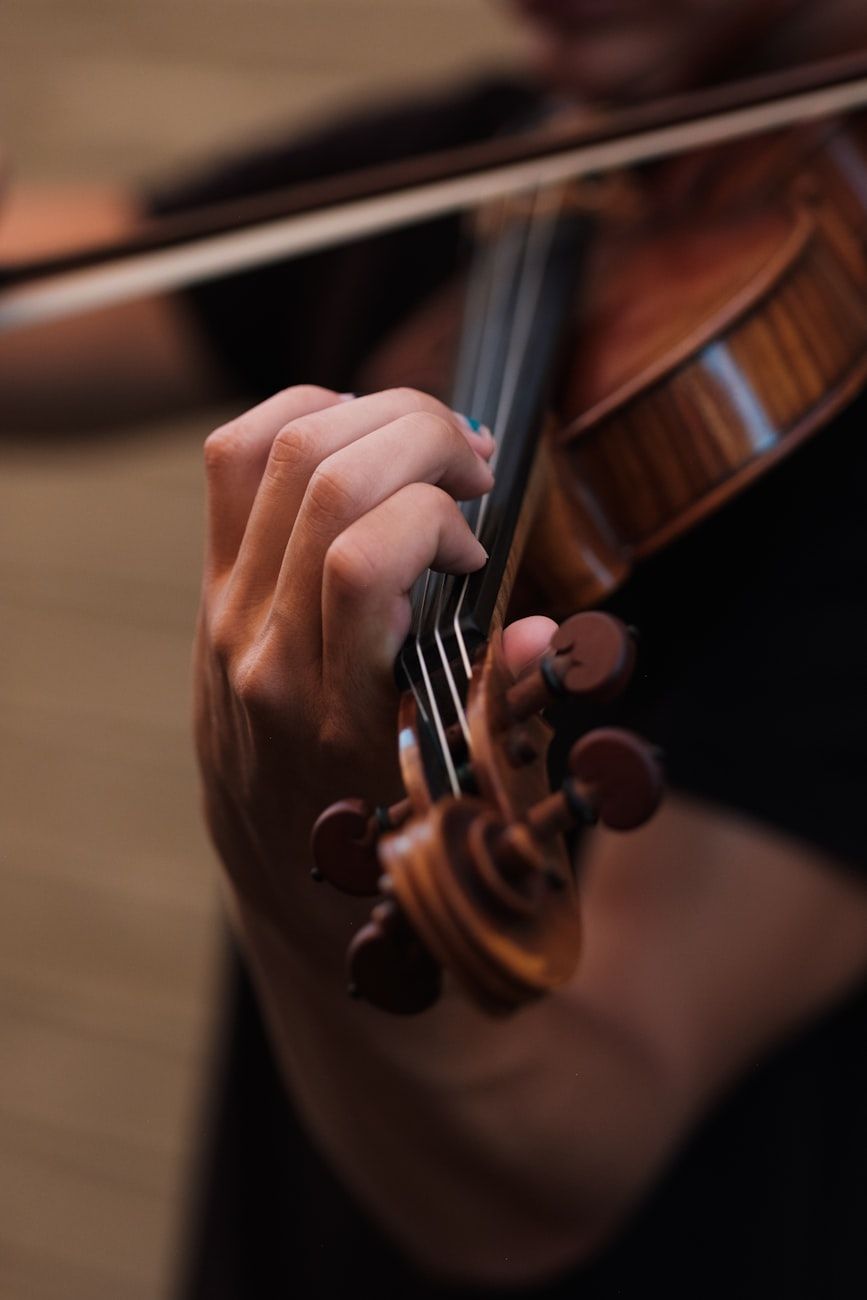
Violin Care: Tips for a Perfect Sound
Musical Instruments & DJ EquipmentWhether you're a beginner or a seasoned musician, taking care of your violin is essential for maintaining its sound quality and longevity. Proper violin care involves regular maintenance, cleaning, and storage practices to ensure that your instrument produces a perfect sound every time you play. Here are some useful tips for taking care of your violin and keeping it in optimal condition.

1. Violin Maintenance:
Regular maintenance is key to preserving the sound quality of your violin. Keep an eye on the condition of the strings, bridge, and bow hair. Replace strings when they start to show signs of wear, and have a professional luthier adjust the bridge as needed. The bow hair should be cleaned and re-haired periodically to maintain its elasticity and rosin grip.
2. Violin Cleaning:
Cleaning your violin regularly is crucial for ensuring its sound quality. Use a soft, dry cloth to wipe down the body, fingerboard, and strings after each practice session to remove rosin buildup and dirt. Avoid using harsh cleaning agents or water, as these can damage the varnish and wood of the instrument.
3. String Instrument Tips:
In addition to caring for your violin, it's important to take care of other string instruments in your collection. Follow similar maintenance and cleaning routines for violas, cellos, and double basses to ensure that they produce a perfect sound and last for years to come.
4. Bow Care:
Proper care of your bow is essential for achieving a perfect sound on the violin. Store the bow in a secure case when not in use to protect it from damage. Periodically tighten or loosen the bow hair to maintain optimal tension, and apply rosin evenly to enhance the sound quality of your playing.
5. Violin Sound Quality:
To achieve a perfect sound on the violin, pay attention to your playing technique and the condition of your instrument. Practice regularly to improve your tone and intonation, and take your violin to a professional for adjustments and repairs as needed to maintain its sound quality.
6. Rosin Use:
Rosin is essential for producing a clear and resonant sound on the violin. Apply rosin to the bow hair regularly to enhance its grip on the strings and improve the projection of your playing. Experiment with different types of rosin to find the one that works best for your playing style and sound preferences.
7. Violin Storage:
Proper storage of your violin is crucial for preventing damage and maintaining its sound quality. Store the instrument in a protective case when not in use to shield it from temperature and humidity changes. Avoid exposing the violin to direct sunlight or extreme temperatures, as these can warp the wood and affect its sound.
8. Tuning Violin:
Keeping your violin in tune is essential for producing a perfect sound. Tune the strings regularly using a digital tuner or tuning fork to ensure that your instrument is in pitch. Fine-tune the strings as needed for each practice session or performance to achieve optimal sound quality.
9. Protect Violin:
To protect your violin from damage and ensure a perfect sound, handle the instrument with care and avoid dropping or bumping it against hard surfaces. Invest in a sturdy case and a humidifier to shield the instrument from environmental changes and keep it in top condition.
By following these violin care tips, you can maintain the sound quality of your instrument and enjoy playing beautiful music for years to come. Take the time to care for your violin properly, and you'll be rewarded with a perfect sound every time you pick up the bow.

Relevant posts

Musical Instruments & DJ Equipment
Violin Care: Tips for a Perfect Sound
Whether you're a beginner or a seasoned musician, taking care of your violin is essential for maintaining its sound quality and longevity. Proper violin care involves regular maintenance, cleaning, and storage practices to ensure that your instrument produces a perfect sound every time you play. Here are some useful tips for taking care of your violin and keeping it in optimal condition. 1. Violin Maintenance: Regular maintenance is key to preserving the sound quality of your violin. Keep an eye...

Musical Instruments & DJ Equipment
How to Build a Portable DJ Setup for Travelling
Are you a travelling DJ looking to build the perfect portable setup that fits your on-the-go lifestyle? In this guide, we will explore the essentials for creating a travel-friendly DJ gear collection that doesn't compromise on performance.Compact DJ EquipmentWhen it comes to building a portable DJ setup, the key is to invest in compact and lightweight controllers. Look for controllers that offer essential features while remaining easy to transport. Opt for controllers that are durable yet lightw...

Musical Instruments & DJ Equipment
Small but Mighty: Mini Instruments for Musicians on the Go
Whether you’re a professional musician touring the globe or a hobbyist playing gigs around town, having the right tools at your disposal can make all the difference in your performance. In the fast-paced world of the music industry, portability and convenience are key factors to consider when selecting the gear that will accompany you on your musical journey. This is where mini instruments come into play, offering a compact and lightweight solution for musicians on the go.Mini instruments, als...

Musical Instruments & DJ Equipment
Violin or Cello? A Comparison for Beginner Musicians
When it comes to choosing a string instrument to learn, many beginner musicians find themselves debating between the violin and the cello. Both instruments offer unique challenges and rewards, making them popular choices among music students interested in classical music. In this article, we will compare the violin and cello to help you decide which instrument is the right fit for you.Size and Structure One of the most obvious differences between the violin and the cello is their size. Th...